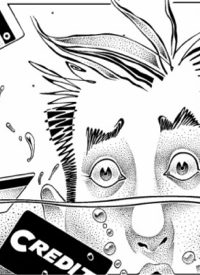
Central bankers and analysts are warning of another credit crisis just around the corner as banks start competing with governments to refinance trillions of dollars in short-term debts coming due soon, resulting in significantly reduced credit availability for businesses and consumers, among other problems.
The threat is particularly severe in Europe, where banks must repay or refinance over $2.5 trillion before 2012. Globally, according to the Bank for International Settlements, the total is around $5 trillion. In the United States, the number is close to $1.5 trillion, less than in Europe, but a significant figure nonetheless.
Meanwhile, governments — especially the U.S. and European states — are also seeking huge sums in the bond market. Trillions and trillions, actually. Financing bailouts, “stimulus” packages, and other extravagant spending isn’t cheap. And the supply of money is limited to whatever amount the central banking cartel decides is appropriate.
The European Central Bank and the Bank of England have already raised the alarm about this problem. All of the competition for credit between banks and freewheeling governments could make it difficult for individuals and productive enterprises to borrow money — exacerbating the economic crisis further.
“There is a risk that banks alleviate their own funding pressures by further constraining credit conditions for customers. That would dent economic recovery and so raise credit risk for all banks,” noted the central Bank of England in a report released last month, adding that British banks must rollover more than a trillion dollars in the next few years.
In an article entitled “Crisis Awaits World’s Banks as Trillions Come Due,” New York Times reporter Jack Ewing notes that the credit crunch could force some banks to merge, downsize, or even beg governments for more help. Others could simply go out of business.
But if borrowers aren’t able to find the credit they need in the market, central banks could resort to the printing press. It’s a very real possibility. The European Central Bank, like its counterpart in the United States, has been pumping huge quantities of new money into banks and even government bonds. But it can’t go on at the current rate forever, lest the euro and the dollar begin to resemble Zimbabwe’s ruined currency — trillion-dollar bills and all.
Of course, in America, Federal Reserve boss Ben Bernanke seems to be oblivious to the dangers of currency collapse and gives as his answer to the problem: business as usual, simply print more debt-money. As much as it takes. Drop it from helicopters if need be. But this “solution” will prove wildly destructive on both continents. And it won’t even come close to addressing the root cause of the problem: the world monetary system itself.
What none of the myriad articles on the subject point out is probably the most important aspect of the story — there is not enough money in existence to pay off all debts. It is mathematically impossible. If every debt was paid back, there would be no more money in circulation. But money would still be owed. Lots of it.
This is because all money enters into circulation as debt to be repaid with interest. While the original loaned-out money is created by central banks, the interest charged on that money is never conjured into existence. So, when new debt-money stops being borrowed into circulation, the system eventually collapses.<
Central bankers know all of this. So do the private banks that own them. But unfortunately, the system works to their advantage — all at the expense of average people. And so, change will be difficult to bring about.
In the short term, banks and analysts are warning that the economy could be heading for a “cliff” as central bankers prepare to inflate their way out of the looming credit crunch and accompanying deflationary pressures. But in the long run, it won’t work, and John Keynes’ point about everyone being dead in the long run provides little comfort to average people trying to support their families. (Keynes developed Keynesian economics, which helped create the present banking system.)
This is a very serious problem. It must be addressed. The next phase of the economic crisis could be just beyond the horizon. And when it comes, people will be looking for answers and solutions. Fortunately, Americans are beginning to understand how the banking cartel operates, and how, in conjunction with governments, it creates the very crises it purports to fight. Central banks have been manipulating the economy long enough — it’s time for a real debate on money, hopefully before the next big crash comes around and the monetary scammers offer more of the same “solutions.”



